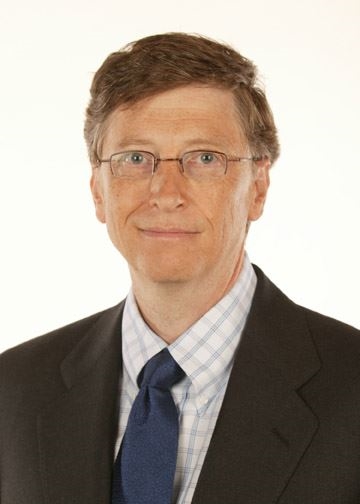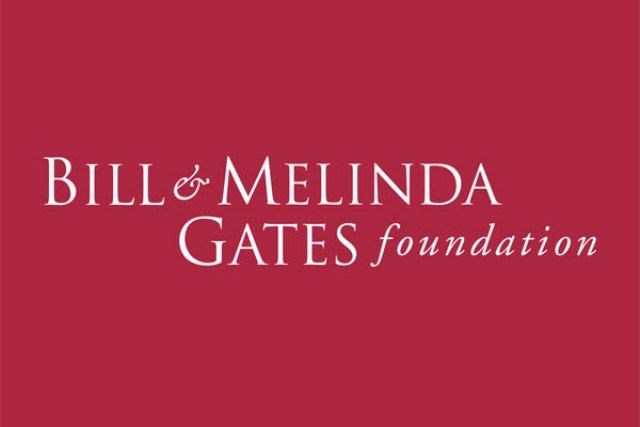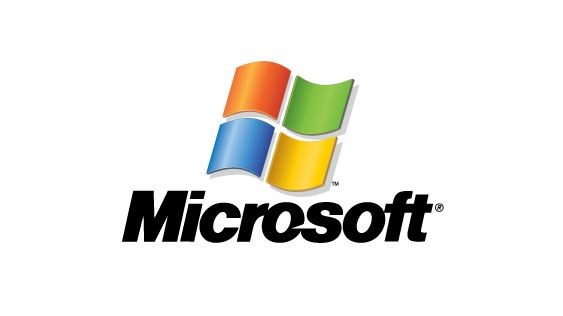 |
| Bill Gates (http://blog.seattletimes.nwsource.com/techtracks/Bill%20Gates.jpg) |
Woodrow Wilson said, "You are here in order to enable the world to live more amply, with greater vision, with a finer spirit of hope and achievement. You are here to enrich the world." Bill Gates thoroughly exceeds Woodrow Wilson's standards for life through his contributions to the world, in the forms of innovation and selflessness. Gates was born in Seattle, Washington on October 28, 1955 as William Henry Gates III. At a young age, Gates developed a hobby for computers. During high school, he used his passion for computers to design a class rescheduling program to place him in the same classes as the prettiest girls in the school. Twenty five years later, the Harvard dropout headed the multi-billion dollar giant that dominated the software and computer industry: Microsoft Corporation. After stepping down as CEO of Microsoft at the beginning of the twenty-first century, Gates and his wife, Melinda Gates, decided to pursue philanthropy. They established The Bill and Melinda Gates Foundation, funding college scholarships, AIDS research, and most recently, the elimination of polio in many third world countries. Gates's generosity with his fortune, passion for his work, and innovation in technology makes him one of the most inspirational entrepreneurs and philanthropists the world has ever seen.
 |
| Bill and Melinda Gate Foundation (http://www.pekoecommunications.co.uk/wp-content/uploads/2011/02/BillMelindaGatesFoundation1.jpg ()) |
Aside
from being a successful businessman and entrepreneur, Gates strived not only
for his personal gains but also reached out to others who are less fortunate
than him. Gates donated much of his personal fortune to his own charity: The
Bill and Melinda Gates Foundation. "In 2011, Forbes reported
that Gates was the world's second richest person, rather than its richest
person. This change occurred mainly because Gates and his wife gave away more
than $28 billion of their fortune to the Bill and Melinda Gates Foundation. In
early 2011, Gates announced that the foundation would focus on completely
eradicating polio and giving vaccinations to the world's poorest children" ("William Henry Gates, III." Encyclopedia). Gates let go of his title as the world's richest man to
pursue a greater and more giving life, realizing that the title of the world's
richest man had no meaning, but his donations could affect the
world drastically. Gates's vast influence in a variety of fields let him
expand the ways he helped the world. The foundation soon became the largest
privately owned foundation in the world. Much of the money went to large scale
donations, such as AIDS research and polio vaccinations in third world countries. However, Gates was also very
personal with his donations: "I've given a lot to private schools; for
the school I went to, Lakeside [School in Seattle], I've done quite a bit. The
libraries were a clear thing where there was an opportunity to just go from a
small percentage of libraries having the Internet and PCs to making sure that
they all had them. And the contribution-although the financial part was a big
part of it, buying the hardware and everything-actually the biggest impact has
been the support people, the training people, the standard configurations"
(Gates). Gates knew that even with his small scale donations, he could still
change the world one step at a time. Even though Gates was capable of making
large donations, he also made small and personal donations to ensure the world became better for everyone, the poor and the fortunate alike. Gates
strived to do whatever he can to make the world an easier, more convenient and
all around better place. Gate's generosity and love for our world and its
people was unrivaled, using his money, inventions, and kind heart to create a
more able planet.
Bill
Gates would not have been able to change the world without his passion and hard
work. His passion was demonstrated by the amount of time he put into his work:
"In the six years between 1978 and 1984 he took
a total of only two weeks' vacation" ("William Henry Gates, III." Encyclopedia). Gates's undying
passion for his work enabled him able to persevere and dedicate most of his
life, if not all, to his work. Most people would not be able to work
continuously for so long, and instead complain about why they had to work so
hard. Gates truly loved his work, and his hard work directly reflected his
passion. Gates's determination and hard work also came from his ability to put
his mind to anything, and make dreams become reality. "Gates has always been well known as a fiery
competitor who does not like to lose. His drive incorporates a belief that
"I can do anything if I put my mind to it," as he has been quoted as
saying in James Wallace and Jim Erikson's book, Hard Drive (1993)"
("William Henry Gates, III." Gale). Gate's drive to make the world a better place
enabled him to put the pedal to the metal, and get important tasks done. His
unrelenting will to always succeed and make a difference granted him the power to
work hard and be successful. Gates's passion, combined with his drive to
succeed, is just further proof that Gates is a hero.
 |
| Microsoft (http://egypt.interact.it/application/xmanager/projects/interactegypt/attachments/partner/logos/000/000/002/partner_microsoft.jpg ()) |
Bill Gates innovated a new era of technology, and
using his revolutionary ideas, he propelled technology to great heights and
ultimately drove his creations into decades to come. His company, Microsoft,
initially went bankrupt, but was saved by his and co-founder Paul Allen's
confidence in their product: "Gates saw that production costs in the
fast-changing market of the future would fall more heavily on hardware; that
is, the machines themselves. The biggest money makers were going to be
operating systems and application software, programs that would be modified and
improved at a relatively low cost" (Rosen). Gates's confidence in himself and
insightful foresight into the future of technology boosted him to great heights,
and enabled him to be successful. Gates's innovative talent and ability to look
forward and see the bigger picture was and still are shown through his lasting
effects on the computer industry. Later, when talking about his successes at
Stanford University in 2008, he said, "'Let me talk now about what I think
software will do in the decades ahead. Certainly if you go back in the start of
Microsoft, nobody thought of software as being important at all" (Gates). Gates
said that even though no one thought software was important, he recognized the
need for it, and revolutionized the software industry. When Gates said, "Let me
talk now about what I think software will do in the decades ahead" (Gates), he
asserted he was able to see the futures of software and computing, displaying his brilliant
talent of innovation. Bill Gates's impressive innovative abilities in
technology have shifted the industry forward.
Bill Gates has revolutionized, changed, and helped the world through his hard work, ingenious ideas, and generosity. Gates has done more than give the world technology and bright ideas; he has changed the world. Gates's work has changed the way people live and work every day. Many people's lives today would be dramatically altered if Gates did not exist. My dad, for instance, would not have been able to make a living without Gates. Likewise, many children in India would be crippled with polio, if not for Gates's efforts. If Woodrow Wilson were alive today, he would say that Gates did enable the world to live more amply, and the Gates did enrich the world. Gates inspires everyone through his unparalleled passion to help the world; he sees the bigger picture and strives for a better planet for everyone, and does everything in his power to do so. Bill Gates is not only an inspirational figure; he is the hero that the our world needs; he is the hero that our world deserves.
Works Cited
Gates, Bill.
"Speech At Stanford University." Address. Bill Gates: College Tour
2008 - Stanford University.
Microsoft, 19 Feb. 2008. Web. 26 Mar. 2012.
Rosen, Isaac. "Gates, Bill (1955-)." Newsmakers. Ed. Louise Mooney. Detroit: Gale Research, 1993. Student Resource Center - Junior. Gale. DEL NORTE HIGH SCHOOL. 28 Mar. 2012
"William Henry
Gates, III." Encyclopedia of World Biography. Detroit: Gale, 1998. Gale
Biography In Context. Web. 21 Mar. 2012.
"William Henry Gates, III." Gale Encyclopedia of U.S. Economic History. Ed. Thomas Carson and Mary Bonk. Detroit: Gale, 1999. Gale Student Resources In Context. Web. 19 Apr. 2012.
Page created on 4/25/2012 12:00:00 AM
Last edited 4/25/2012 12:00:00 AM
